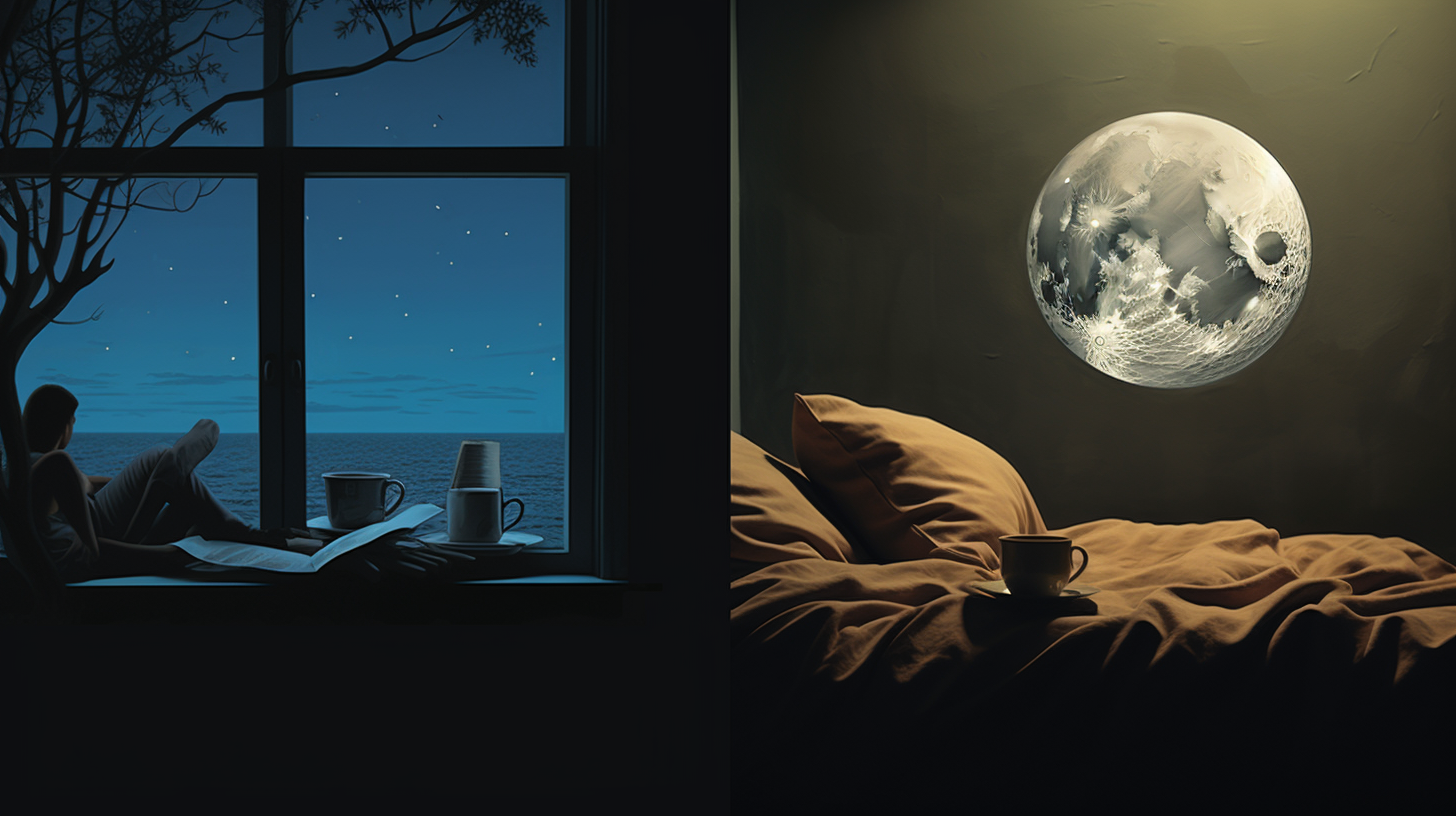You’re a coffee lover, but wonder, ‘Should I have coffee before bed?’ Let’s dive into this debate.
We’ll explore how caffeine affects sleep, how long it stays in your system, and if there’s a ‘best time’ to indulge.
We’ll also discuss alternatives for your bedtime beverage. Whether you’re an early bird or a night owl, let’s discover the truth about your nighttime coffee habit.
So, grab a cup of joe and keep reading!
How does Coffee affect sleep?
You might be wondering how coffee affects your sleep.
It’s important to understand that coffee, specifically its caffeine content, can interfere with the production of melatonin, a hormone that regulates your sleep-wake cycle.
Moreover, caffeine’s ability to block adenosine, a chemical that naturally induces sleepiness, can potentially lead to insomnia.
Can coffee cause insomnia?
Drinking coffee before bed, you’re potentially inviting insomnia into your night, as caffeine can significantly disrupt your sleep. Research suggests that coffee consumption may lead to insomnia symptoms, particularly affecting your ability to stay asleep. The impact of caffeine on your sleep can vary based on individual differences.
Caffeine can increase instances of waking up during the night, interrupting your sleep cycle.
Avoiding coffee can lead to improved sleep quality and longer sleep duration.
Switching from caffeinated to decaffeinated coffee can make it easier to fall asleep.
Despite these findings, the science isn’t entirely conclusive and effects can differ among individuals.
It’s important to understand your own caffeine sensitivity and adjust your coffee consumption accordingly for a restful night’s sleep.
How long does coffee stay in your system?
Understanding how long coffee stays in your system is crucial when considering a late-night cup. The average half-life of caffeine, which is the time needed for your body to break down half the amount, is about 4 to 6 hours. However, this can range from 1.5 to 9.5 hours, depending on your individual biochemistry and other factors that affect the speed at which you metabolize caffeine.
Your consumption of nicotine products, for instance, can speed up the metabolizing of caffeine by as much as 50%. If you’re pregnant or nursing, it slows down the process. The types of food you eat might also play a role. Eating brassica vegetables, like broccoli, could potentially speed up the metabolizing of caffeine, although more research is needed in this area.
Your genetic makeup is another key factor. Some people naturally metabolize caffeine faster than others due to their specific genetic traits. Lastly, if you take oral contraceptives, they slow down the metabolizing of caffeine. This means that it could take longer for caffeine to leave your system if you’re on this type of birth control.
Best time to drink coffee
Determining the best time for your coffee fix involves considering several factors, including your personal sensitivity to caffeine, your daily routine, and your specific goals for consuming this popular beverage. While scientific research on the optimal timing for coffee consumption remains inconclusive, you can make an informed decision based on your personal experience and understanding of how caffeine affects your body.
Morning Boost: If you’re seeking energy to kickstart your day, a cup of coffee in the morning may be beneficial. One study suggested improved performance and vigor among participants who consumed caffeine between 6AM and 7AM. However, remember that these were elite athletes, so your experience may differ.
Afternoon Pickup: To combat the mid-afternoon slump, a post-lunch coffee might be your best pick-me-up. But be cautious, as caffeine can interfere with your sleep if consumed too late in the day.
Exercise Enhancer: If you’re using coffee to boost your workout performance, try timing your caffeine intake with your exercise schedule. But bear in mind, everyone’s response to caffeine can vary when it comes to physical activity.
Evening Indulgence: It’s best to avoid caffeinated coffee close to bedtime due to its potential to disrupt sleep. However, if you enjoy the comfort of a warm beverage in the evening, consider decaf coffee.
What should I drink before bed?
So, if you’re looking to cut down on evening coffee, what’re some alternative beverages you can consider before bed?
Warm milk might be an option, as it contains tryptophan, an amino acid that can promote relaxation. A small study even found that participants who drank warm milk and honey twice a day reported improved sleep. While the evidence isn’t comprehensive, it might be worth trying, unless you’re lactose intolerant or sensitive to dairy. Then, almond milk, rich in tryptophan and magnesium, could be your go-to.
Another potential substitute is chamomile tea. Popular for its therapeutic benefits and calming effects, it’s a widely preferred bedtime beverage. Unlike coffee, chamomile tea won’t keep you up, and it can provide a soothing experience before you hit the hay.
Adding variety to your pre-bedtime routine, tart cherry juice can also be beneficial. Tart cherries are rich in melatonin, the hormone that regulates sleep, and have anti-inflammatory properties. Some small studies have indicated that tart cherries can promote sleep.
If you’re in the mood for something a little more substantial, you might consider a banana smoothie. Although the research isn’t conclusive, eating bananas may increase melatonin levels. It’s an option worth exploring if you’re trying to curb your evening coffee habit.
Conclusion
In conclusion, drinking coffee before bed isn’t a one-size-fits-all scenario. Your caffeine sensitivity, lifestyle, and sleep habits play a crucial role.
While it can disrupt sleep patterns for some, others might find it a comforting routine.
It’s best to observe your body’s reaction and decide accordingly. And remember, there’s always decaf to satiate those late-night coffee cravings while ensuring a good night’s sleep.
It’s your call. After all, you know your body best.
Frequently Asked Questions
The type of coffee, Arabica or Robusta, doesn’t directly impact sleep patterns. It’s the caffeine content that does, which is typically higher in Robusta. If you’re sensitive, avoid high-caffeine varieties before bed.
Yes, the brewing method can alter caffeine content in coffee. For instance, espresso has more caffeine per volume than drip coffee. Therefore, it might affect your sleep more if consumed close to bedtime.
Yes, certain conditions can exacerbate caffeine’s effects on sleep. If you’ve insomnia, anxiety, or heart issues, you’re more likely to be affected. It’s crucial to consult your doctor before consuming caffeine at night.
If you’re overly sensitive to caffeine, you might experience difficulty falling asleep, frequent awakenings, restlessness, and a general feeling of unease or jitteriness. These symptoms can be more pronounced if caffeine is consumed close to bedtime.
Yes, habitual coffee drinkers can develop a tolerance to caffeine’s sleep-disrupting effects. However, this doesn’t mean it won’t affect your sleep. It’s best to limit your intake, especially close to bedtime.



